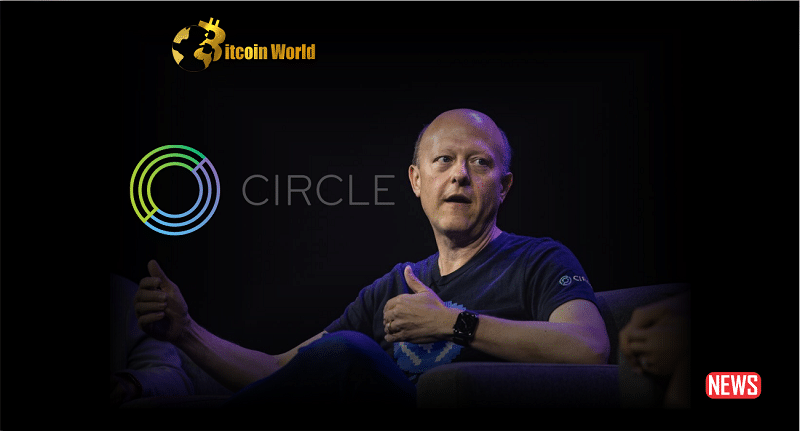Is the US dollar’s global dominance under threat? Jeremy Allaire, CEO of stablecoin giant Circle, thinks so. Speaking at Consensus 2023, Allaire delivered a stark message: the United States needs to wake up and embrace the digital future of currency, or risk being left behind in a rapidly changing global financial landscape. Let’s dive into why this is happening and what Allaire believes needs to be done.
Why the Urgency? De-Dollarization is Accelerating
Allaire didn’t mince words, highlighting a significant shift in global finance: “There is a very active de-dollarization going on.” But what exactly does this mean, and why should we be concerned?
Essentially, de-dollarization refers to a move away from the US dollar as the primary currency for international trade and reserves. Allaire points to several factors fueling this trend:
- Banking System Concerns: Recent turmoil in the US banking sector has understandably shaken confidence.
- Geopolitical Factors: US foreign policy and sanctions have led some nations to seek alternative financial systems.
- Desire for Alternatives: Around the world, there’s a growing demand for diverse and efficient payment solutions.
The numbers speak for themselves. As Reuters reported, the Chinese yuan recently surpassed the US dollar in cross-border transactions within China for the first time – a significant milestone.
The Solution? Stablecoins and a Digital Dollar
So, what’s Allaire’s prescription for maintaining the dollar’s strength in the digital age? He believes the answer lies in two key areas:
- Embracing Stablecoin Legislation: Clear and comprehensive regulations are crucial for the growth and adoption of stablecoins like USDC. This provides a regulated and trustworthy on-ramp to digital currencies.
- Digitizing the US Dollar: Allaire urges the Federal Reserve to integrate a digital dollar into its core systems. This would allow the US to capitalize on the global demand for digital dollars and maintain its competitive edge.
Think of it this way: the internet revolutionized communication, and now digital currencies are poised to do the same for finance. The US needs to be at the forefront of this innovation.
What’s at Stake? A Missed Opportunity
Allaire emphasizes the potential consequences of inaction. If the US government doesn’t act decisively, it risks a “giant missed opportunity.” The demand for digital dollars is already global, particularly in:
- Emerging Economies: Where individuals seek a more stable alternative to their local currencies and banking systems.
- International Transactions: Where digital dollars offer a more efficient medium of exchange.
Imagine a world where the US dollar remains a dominant force in the digital realm, facilitating seamless and secure global transactions. That’s the future Allaire envisions.
Circle Takes Action: The Cross-Chain Transfer Protocol (CCTP)
While advocating for government action, Circle isn’t standing still. The company recently launched USDC on the Cross-Chain Transfer Protocol (CCTP). Allaire considers this the “most important new piece of blockchain infrastructure” since USDC’s inception in 2017. But what does CCTP do?
Essentially, CCTP enables the seamless and secure transfer of USDC across different blockchain networks. This significantly enhances the utility and interoperability of USDC, making it even more attractive for global users.
The Path Forward: Collaboration and Innovation
So, what are the key takeaways from Allaire’s message?
- De-dollarization is a real and accelerating trend.
- The US needs to proactively embrace digital currency innovation.
- Stablecoin regulation and a digital dollar are crucial steps.
- Inaction could lead to a significant loss of global financial influence.
The future of finance is digital, and the US has a critical choice to make. Will it lead the way, or risk falling behind? The time for action, according to Jeremy Allaire, is now.
Disclaimer: The information provided is not trading advice, Bitcoinworld.co.in holds no liability for any investments made based on the information provided on this page. We strongly recommend independent research and/or consultation with a qualified professional before making any investment decisions.


